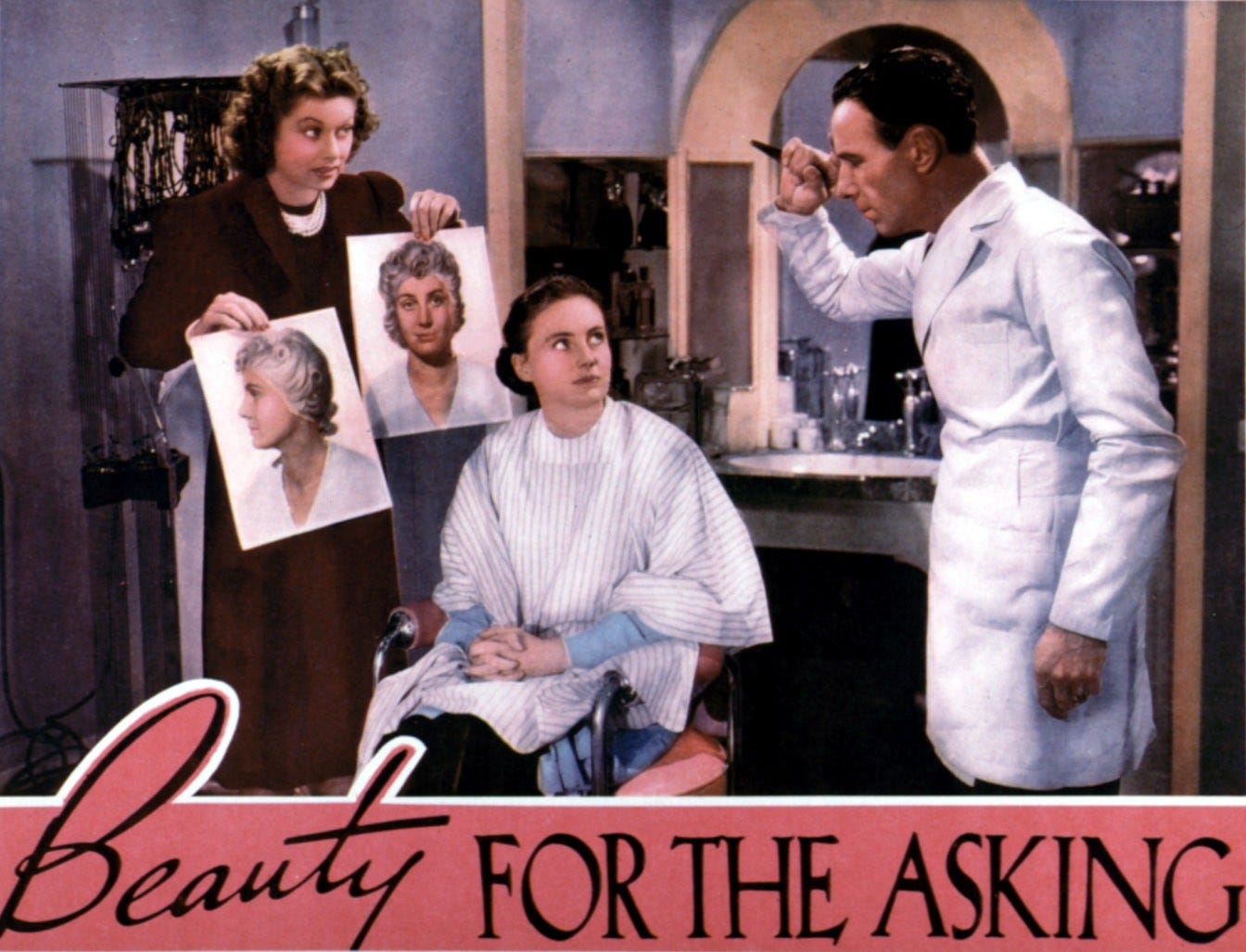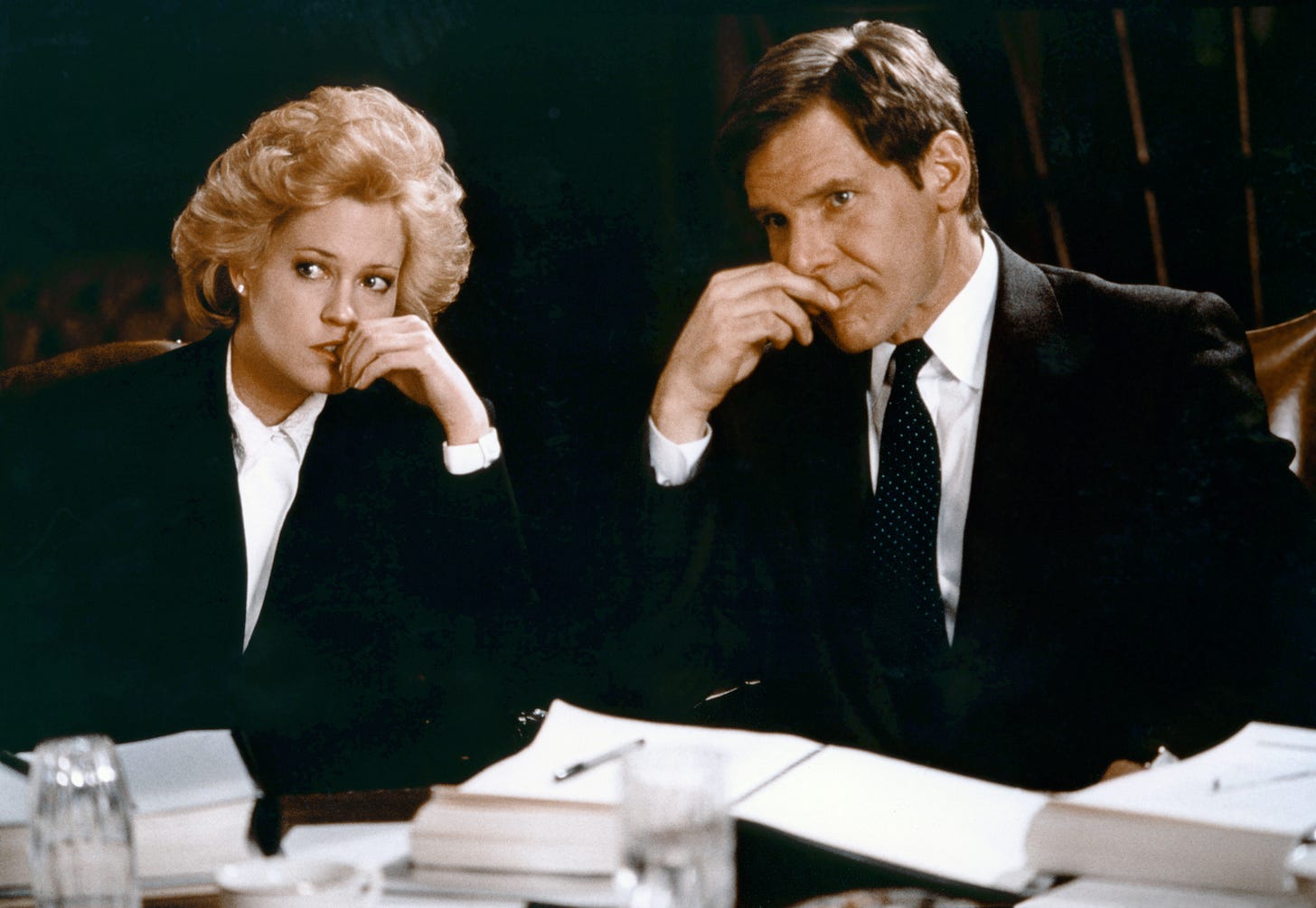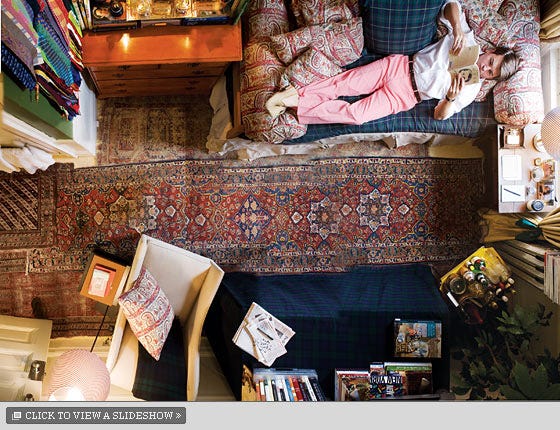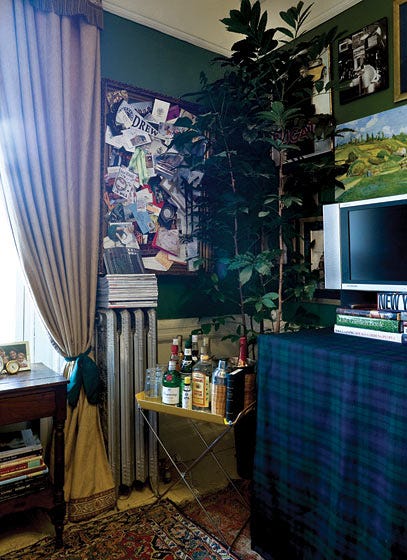Unedited Field Notes on Different Types of Femcels That Might Be Wildly Inaccurate But Please Don't Tell Me If It is Because I'll Be Extremely Embarrassed
thought digest, 3.09.2022

An update on this allegedly ‘coming wave of sex negativity.’
With articles about the growing backlash against sex positivity have come a suite of articles alleging that these women are femcels.
I don’t think that this is a fair or true characterization—just as not every right-wing misogynist is an incel, not every woman burnt out on the very particular type of Zeitgeist-y hook-up culture that dominated the media landscape in the 2010s is a femcel.
Where did this mislabeling come from? I have two theories. Either it’s an attempt at creating a category where there is none, i.e., how do we position experts in something that does not have a name, or it’s an attempt to discredit the women speaking out against sex positivity. There’s also a third possibility: it’s both.
Here are a few quick thoughts on this evolving conversation:
First up, let’s name the backlash that is impetus behind the creation of this femcel character. I vote “sexual counterrevolution.”
I’m not sure what I think about the label “sex negativity” and I regret using it in my initial blog post, though, in my defense, I never expected that piece to blow up in the way that it did.
I like Mary Harrington’s “sexual counterrevolution,” from her piece in The Spectator. There have been other “sexual counterrevolutions” in the past, but my feeling on that is… who cares? It’s a good term.When I personally talk about the sexual counterrevolution, I am touching on something specific, not the full story.
A more generalized backlash on the level of cultural and social trends.
A shift in how sex is represented in media (the press, social media, movies, podcasts, influencers).
What’s confusing is that neither of these things necessarily map onto behavioral changes in the physical world. I am not making claims about that one way or the other. What I’m trying to describe is the narrative layer, and some subcultural expressions of that narrative.
For more specific behavioral trends, I defer to people like Rob K. Henderson, Louise Perry, Mary Harrington, Indian Bronson, and others.Thus far, the media predictions listed in the original ‘Coming wave of sex negativity’ haven’t been too far off. Here are just a few books and articles published in the months following that piece:
Mary Harrington’s The sexual counterrevolution is coming (May 19, 2021)
Madeleine Holden’s Has the sex positivity movement peaked? (July 29, 2021)
Amia Srinivasan’s book The Right to Sex (September 21, 2021)
Michelle Goldberg’s Why Sex-Positive Feminism Is Falling Out of Fashion (September 24, 2021)
Tara Isabella Burton’s on sex negativity (October 5, 2021)
Mehreen Kasana’s Call it sex negativity or common sense, there's backlash around the corner. (October 31, 2021)
Sheep in the Box’s Sex Negativity From “Leftists” & Reactionary Liberals (December 14, 2021)
Christine Emba’s Rethinking Sex (March 22, 2022)
I would also include the myriad reflections about pornography and hypersexuality. The most famous of these is Billie Eilish’s admission that porn ‘destroyed her brain.’
Why now?
It’s not that people have never questioned more casual approaches to sex, or that there was never any pushback.
Who could forget the perpetual “So, is hook-up culture a good thing?” think pieces of yesteryear? When I was hosting After the Orgy, we had two great episodes on it, one through the lens of the Emma Sulkowicz project, “Carry That Weight.” Then there’s Nancy Jo Sales, who rode that wave better than anyone.
I also think it’s worth pointing out that the Manosphere and adjacent online spaces have also long questioned sexual liberation, sex positivity, and the Sexual Revolution. For the disgruntled, Terminally Online men who see this conversation unfold and say, “These are just microwaved Manosphere takes,” they have a point.
It’s the same basic message, in more accessible language. The point is that not that it’s original; it’s that it’s wormed its way into the mainstream.
But this is the first time in a while that we’ve seen this kind of energy behind the question of sexual propriety. And notably, it comes from the left, right, and center. This is also extremely important. The right is certainly leveraging this energy, as sex has long been a concern of theirs, but that doesn’t mean it’s been seeded by the right. I discuss this differentiation here.
I’ve also noticed people building launch pads around refuting the idea that such a counterrevolution is coming, or if it is coming, that it’s unnecessary. And if they’re not building those launch pads themselves, then people are certainly placing them there, hoping they take off.
I don’t think it’s an accident, for example, that Rationalist-adjacent cam girl and Internet celebrity Aella is a frequent guest on programs that ask questions like, “Did the sexual revolution come at a cost?”Social media’s role in all this. But social media also plays a big role in this, too, and what I’m talking about is as much about headlines and books and Netflix specials as it is about the way people have these conversations online.
I’ve been tracking a number of keywords on social listening tools since people started to ask me about ‘the coming wave.’
Here are just a handful of trends that are up by thousands of percentage points:Girl boss feminism and neoliberal feminism as a pejorative
Complaints about hook-up culture
Skepticism around feminism, in general
I’d love to write a fuller report on this, because I think this contains some of the most compelling evidence, but unfortunately, I just haven’t had the time. I managed to shoehorn some of this social media data in a recent review of Jonathan Franzen’s latest book, for American Affairs.
Don’t ask me how I did it, but a girl manages.
Sunset Boulevard / Contributor This, as much as anything, is part of what the smartest-trend-forecaster-I-know Sean Monahan describes as a ‘vibe shift.’ I wrote about this in my very first piece for UnHerd, ‘Sex positivity can’t last.’
Millennials are now between the ages of 27 and 40. Of course what was ‘cool girl’ behavior in 2010 will parse as cringe today.
Millennial Cool Girls were Hot Messes obsessed with de-sanctifying their bodies and sexuality. They got stupid stick-and-pokes because “who cares,” they drank like fish and abused pills, they were Wine Moms before they hit 24, and there social media presences were marked by endless oversharing about unsatisfying sex with men they allegedly believed were trash. I don’t blame them though. Of course they behaved this way: the media marketed Millennials as the Incompetent Generation, across any and every axis. This was what you were told if you were unemployed and living with your parents; if you were hustling in the Big City; doing just fine in the suburbs after graduating state school; if you were a hipster vying for a gig at Vice while pursuing a Masters in philosophy.
Even the messaging to Millennial Girl Bosses diminished their capacity to be confident adult women; it’s no surprise that Hillary Clinton eventually guest starred on Broad City. (At least Lena Dunham’s Girls was emotionally honest, but that’s another topic for another day.)
Are we just flattening sex another way with this sexual counterrevolution stuff? No! There’s an UnHerd article that I won’t link here but that lives rent-free in my brain.
It suggested that people like me were ‘idiotic’ for trying to call out this trend. This is nothing new, was the implication, and even if it was new, the issue is that sex is complicated. ‘Sex negativity’ is just one more way to flatten it.
But irrespective of my own engagement with this topic, I don’t think that the women who are at the forefront of this conversation want to flatten sex, which is why I think my original use of the word ‘sex negativity’ was misguided.
I think they want to re-evaluate sex as more meaningful than a way to pass the time or a leisure activity untethered from a robust physical, psychological, or emotional response. Actions have consequences outside of your internal narrative about them.The changing landscape of the culture wars. This is part of a wider re-examination of how we’ve been living (liberalism? Is the word I’m looking for liberalism?), and why I believe that there are deeper fault lines to the culture war, namely around technology’s role in our lives. Writers like James Poulos, author of Human, Forever, are on the money.
I also think this is why part and parcel of this shift is more gender critical discourse and pushback against hormonal birth control and cosmetic surgery. These are all extensions of our tech-enabled world.What differentiates this from other ‘false alarms’ about vibe shifts? Good question—synchronization between social media and the press. Sometimes the Press will “call” things where there isn’t a sufficient amount of on the ground chatter. Again, this is different from pieces that descriptive of proven behavioral changes. I know it’s confusing; I confuse myself talking about it sometimes.
I believe there are two conversational changes going on right now, one towards trend analysis a la Nymphet Alumni or oldloserinbrooklyn on TikTok and one towards more tech-critical politics. I write more about that here.Some of the most popular media in the sex and relationships category are experiencing a lag in these changing attitudes.
I have been listening to Savage Love since 2010, after being introduced to it by my then- best friend, who was a New Jersey-born, bisexual, sex positive feminist. I remember one of the first fights we had was about whether or not a person’s interest in BDSM reflected anything about their past trauma, and she pointed me to either an episode of Savage Love or a Dan Savage column, that said that you can’t judge a person’s past by their fetishes. I didn’t buy it. It would be one of many similar fights we’d have in the six years we called one another BFF.
But it’s because of her that I went on to love Dan Savage and listen to his show religiously, even though I vehemently disagree with many of the core tenets of his philosophy on sex. (Now that this admission now out in the open, it’s probably obvious where his advice-giving style has influenced mine.)
It’s been so strange to see him hold steady on his worldview for the last decade and some change, I remember even feeling in the 2010s that some of the battles he was litigating were more relevant in 2006 than 2012, like his work was most salient in a particular time and place. He’s suffered some criticism in recent years, though most of it unfair, and from where I’m standing, more about the language he uses than his message, which feels indistinguishable from what’s been de rigueur until recently.
Part of me wonders if his message will wrap around to saliency, again.
Anyway, all of this takes us to the present day, where writers are recognizing that this energy is growing and trying to figure out where the narrative is. Are women like the neo-prude columnist and activist behind We Can’t Consent To This, Louise Perry, merely ‘femcels’? What about the women her work might resonate most with, like those who make TikToks complaining about hookup culture?
Of course not.
As far as I’m aware, here is a taxonomy of femcels and people falsely labeled as femcels. Please correct me if I’m wrong:Women who are truly “forever alone.” These women are invisible to men. Sometimes this is a product of body dysmorphia or living in a community that’s too exacting about women’s appearance; many times, this is due to a physical deformity. Insofar as a digital community exists, it manifests in the form of gated communities: predominantly subreddits, forums, and Discord servers, which for the sake of their privacy, I won’t list here.
To gain entry to these types of communities you may have to prove that you’re a femcel, or at a minimum, a woman.Old school incels. A favorite myth in the mainstream incel narrative is that the word incel was coined by a woman, initially as a way to help foster community among people who were truly suffering, and it was “hijacked” by “entitled,” “white supremacist” misogynists like Elliott Rodger (who, by the by, never identified as an incel). I go into detail on that here, but the tl;dr is that while they may use the same word, you can’t really draw a straight line from Alana’s “Involuntary Celibacy Project” to contemporary male incels.
That doesn’t mean that no such community existed, however. What I mean by “old school incel” here is, well, Very Online spinsters. These women have been online for a long time; own their situation; may or may not be bitter; are likely a more classical nerd.The women of Invicta and FDS. These are women who are critical of popular advice like “just be yourself,” but aren’t necessarily femcels. These are digital communities, and there are more like them, but it’s a very specific type of self-help. It may include commiseration about feeling alienated based on appearance, or other women’s behaviors, but that isn’t the goal for this type.
Various forums and imageboards. This is more derisive, but I’ve noticed a tendency to refer to people on gossip forums like Pretty Ugly Little Liars (which is fairly niche, and focuses on certain online micro-celebrities) and so on as ‘femcels.’ Of course, they may be femcels, but these aren’t communities for femcels explicitly. I bring them up because I’ve noticed that outsiders genuinely believe that these are places for femcel solidarity and genuinely a common mode of femcel engagement. I doubt it.
Anyone who professes radical feminist beliefs on TikTok or Twitter. It should go without saying that this term is used pejoratively and inappropriately when applied to this group.
The TikTok femcel. Different than the woman who uses TikTok to lament the dating landscape. This is a distinct aesthetic, popular among Zoomer women. It’s ironic; detached. An evolution of previous archetypes of Very Online Women. They might be gamers. They post incomprehensible memes. They’re esoteric. They affect living in their own filth, though they may not actually—it’s more a feeling than a behavior. They’re cute and thin, but not always. They might jokingly identify with Lain from the anime Serial Experiments Lain, etc.
The women who resonate with the word femcel but aren’t part of a subculture per se. I’ve noticed that these women are ‘femcels’ due to age and environment. They may skew younger; they may live somewhere with unforgiving standards; they may be first- or second-generation immigrants or come from a religious background. They might be in group chats with likeminded women, but there is no ‘community’ in the same sense that femcels of the first and second type have a community.
Women burnt out on hook-up culture. These are the women who I suspect are the target, here. We all know who these women are. You see them on TikTok. They might give dating advice. You might be wondering how it took them this long to start questioning the status quo.
They may promote celibacy; they may just be lamenting their own life experiences. Even the women in this group who promote celibacy though are likely not actively “femcels,” in the same respect that when we think of male celibacy groups, we rarely think of Men Going Their Own Way (MGTOWs) or voluntary celibates (volcels). We may know that they exist; but they are a separate category.Women who are not part of a subculture but who technically meet some definition of femcel. Finally, there are myriad women who get called ‘femcels’ simply because they’re single; unattractive; voice their loneliness; voice dissatisfaction with being childless. These women come from different digital communities or have no community affiliation at all. Maybe they’re a vocal member of a community like Childless Not By Choice, for women who wanted kids but were unable to have them, or maybe they’re just fat, lonely, and dared to make a TikTok about their personal lives.
That list is likely not as exhaustive as I would have hoped, but it’s what I got for you now, and I think good enough context.
Blitz advice:
We haven’t put out an advice column in a couple of weeks, here’s some blitz advice based on your tweets…
You don’t want to. Fame without status sucks.
Figure out which red flags are okay to ignore—really. I think people struggle between knowing when to give people a chance, and when people are out of chances. Americans are just poor judges of character in general.
Write whenever creativity strikes you, even if it means on post-it notes at your desk or on your phone. Write even when you don’t feel like it. Get enough sleep.
This is just a matter of discipline— I struggle with it too. Putting my phone in a drawer has helped a lot.
Realize you’re going to fuck up a lot at first, but it’s a muscle just like anything else. That sounds like a cop-out, but it’s true. But the other part of this is that I think people assume that we need to be consuming more information. Or that we need to be more productive. Going slow and doing things that pay off (leisure counts) is important too.
Answered questions until I gave up.
Low ROI. Don’t do it!
In America? A fandom. Strong consumer element. No leader. No transcendent element.
Depends on how you’re organizing them. Here’s a dorm room that I’ll always remember:
He had too much stuff, but he does it well. Same principle with tchotchkes, I think.
I think being healthy takes practice. Just don’t give up.
Plenty of places to find financial advice or advice on what or how to study. The one thing I wish I did more in college was trust my gut. That’s different than “going out of your comfort zone.” If something feels intuitively wrong (or right!), listen. Sometimes other people don’t know better than you do.
What I’m reading this week:
Rethinking Sex by Christine Emba
Critical Cyberculture Studies, edited by David Silver and Adrienne Massanari
Some housekeeping for paid subscribers:
I could have SWORN I scheduled Juno/Scott Pilgrim for this week, but I can’t find the email where I announced it. I am losing my mind!
Where did it go? I’m pretty sure it was part of a post where I also listed what books I was reading at the time, too, including TikTok Boom by Chris Stokel-Walker. Am I losing my mind? Are there posts disappearing?
Does March 14th at 8pm CST/9pm EST work for everyone? If so, I’ll send a Zoom registration link tomorrow.I also can’t find the email where I announced the 3-week All Watched Over by Machines of Loving Grace discussion group, so mark your calendars for:
March 22nd at 6pm CST/7pm EST
March 29th at 6pm CST/7pm EST
April 5th at 6pm CST/7pm EST
Keep your eyes open for a roleplaying thread… I haven’t felt possessed by the spirit of creativity necessary to start world-building, but it’s coming.
ETA: I just found the newsletter where I made these announcements. FML. Well. See you on the 14th, 22nd, 29th, and 5th. 😡







Walking into a millenial's home I would expect to find a stapler on a desk with a little tag that says "stapler" on it and "desk" on the desk, and a little tag on the toilet that says "toilet." You've fallen victim to your generation's manic desire to label everything. Being choosy about partners doesn't make one "sex negative"; usually it just makes one female, though plenty of men are that way too and catch hell for it. There have always been "believe everything" 19 year old girls, and 50 year old women who have been around the block with men and are sick of their shit. We don't need to label them as anything but women; we certainly never needed to in the past.
This is simply a terrible time in history to be a woman. I won't bore you with tales about why it's no shock that witch burnings happened during the Reformation, a time when people were quite literally terrified they were worshipping the wrong god and would go to hell. Or that the worst beat down of suffragettes was during the first year of the Spanish Flu Epidemic, a time when women were considered insane if they sought an orgasm. During times of social, political, and pandemic upheaval, women are blamed for everything. Everything. I've been called this "Karen" thing more times than I can count, all by white people, usually white men who didn't care for how I stood up to them. Our rights, including reproductive freedom, are fading away into the morass of women-hate. And it's going to be years before it calms down. I agree that these labels are misused, I just don't see ANY use for them that isn't bad for women. Meanwhile I'll twiddle my thumbs, and hope no one finds a match.
I think the problem with the "sex negativity" discourse is it conflates 2 very different ideologies:
1) the social conservatives who idealize tradcath life, think feminism went too far and hurt women, are critical of sex work from a "coarsening of society" perspective, and want women to settle down into earlier marriage/childrearing and be "submissive" as a tradeoff for a non-porn-addled, breadwinner husband.
2) the FDS (Female Dating Strategy) types who blame men for the sexual revolution's failures, are critical of sex work from a feminist standpoint, see men paying for dates as a "patriarchy tax" and not something the woman needs to reciprocate emotionally, and want women to withhold sex and stay single unless they can find a man who meets specific standards of high effort in relationships and financial/mental stability.
These people are not even remotely the same. In fact, they hate each other.